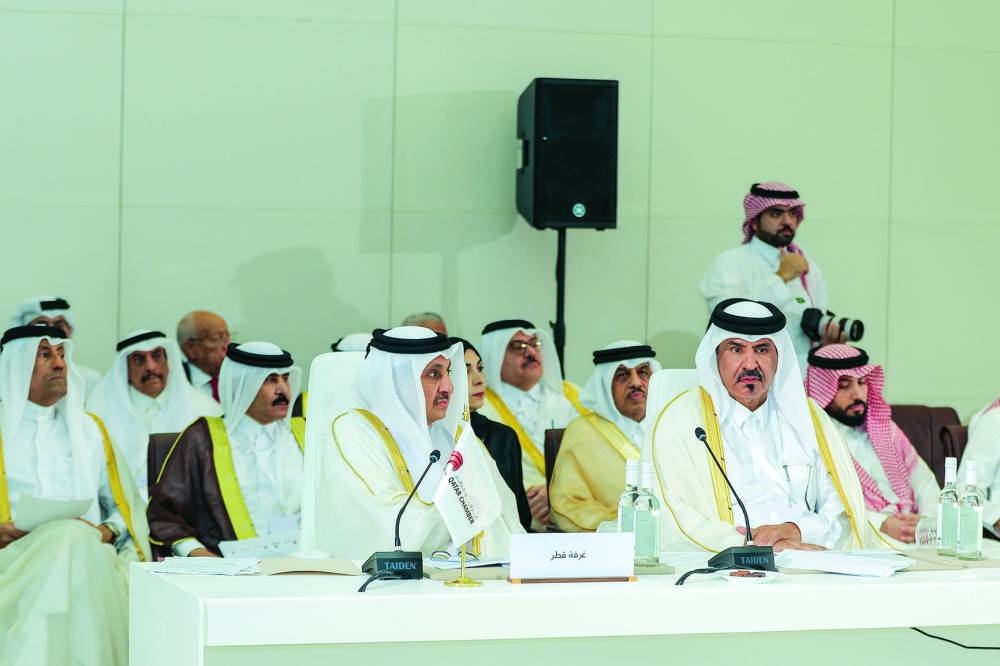Qatar Chamber chairman Sheikh Khalifa bin Jassim al-Thani has emphasised the vital role that the Federation of the GCC Chambers plays in the development of the Gulf private sector.
He made the statement during the ‘Consultative Meeting between their Excellencies the GCC Ministers of Commerce and Industry and the Heads of the GCC Chambers of Commerce’.
Sheikh Khalifa stressed the significance of the consultative meeting for reviewing mechanisms to elevate economic growth and enhance economic integration and communication between member states.
He noted that the meeting serves as a concrete implementation of the directives set forth by the leaders of the GCC states, who aim to provide support for the private sector and boost its crucial role in inclusive economic development across member states.
Sheikh Khalifa stressed that the meeting further underscores the GCC leaderships’ keenness to address all issues and challenges related to strengthening economic and commercial cooperation between member states.
He also hopes that the meeting will yield positive recommendations and concrete results that contribute to addressing all challenges facing GCC economies, expanding the private sector’s role in economic activity in member states, and supporting the FGCCC’s role.
Sheikh Khalifa reaffirmed Qatar Chamber’s support for these directives, including its commitment to strengthening co-operation with GCC unions and chambers, fostering co-operation between Qatari and Gulf private sectors, and promoting partnerships between the public and private sectors across member states.
During the meeting, Sheikh Khalifa reviewed the chamber’s initiative ‘Made in the Gulf’, which aims to enhance the economic integration of the industrial development and increase the joint ventures between the Gulf private sector and between the public and private sectors. It also aims to make advantage of the economic zones in member states amounting to 60 zones.
He noted that the initiative contributes to achieving the Gulf directives to reach economic citizenship, accelerating the exchange of commodities in GCC custom ports. It further contributes to stimulating local and foreign investments in the industry sector and raising the efficiency of special economic zones in GCC states.
Business
Qatar Chamber reviews initiative to enhance GCC economy, industry during consultative meeting

Qatar Chamber chairman Sheikh Khalifa bin Jassim al-Thani during the Consultative Meeting held in Doha.
